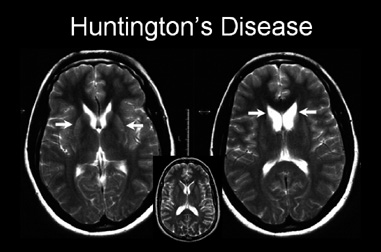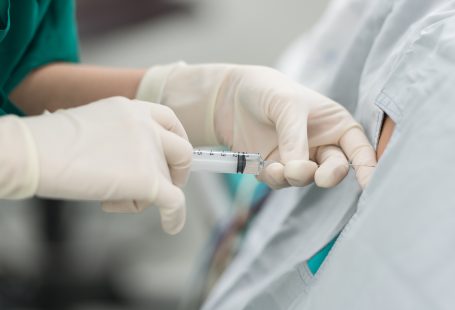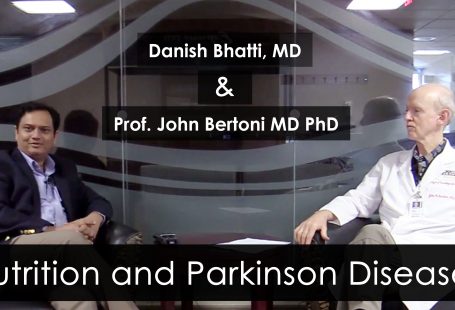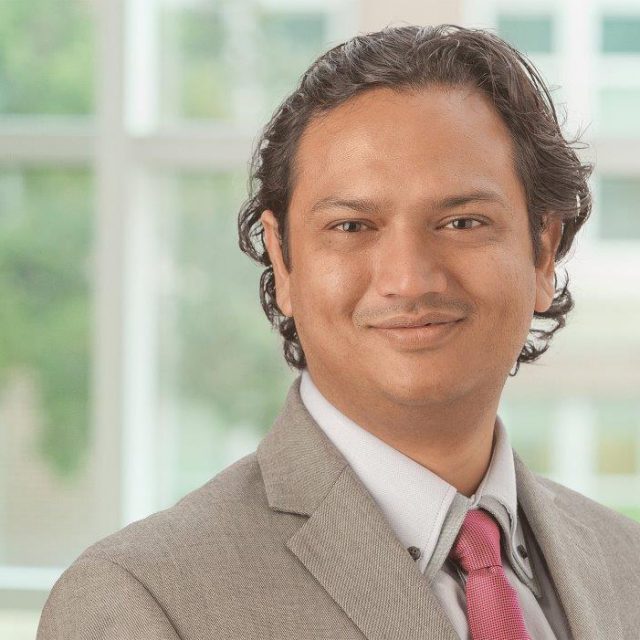
Danish Bhatti: Hello and welcome to movement disorder podcast.I am Danish Bhatti. I am a Movement Disorders Neurologist at University of Nebraska Medical Center (UNMC). This week’s podcast will focus on Huntington’s disease and its implications. To discuss this fascinating disease we have the pleasure of having on our show, Dr. Amy Hellman, the director for Huntington’s Disease Society of America (HDSA) Centre of Excellence for Huntington’s disease. I have worked with Amy for almost 4 years now and the most important thing I can tell you about her is that she’s always smiling and is always happy. Amy what’s your secret for that.
Amy Hellman: No I don’t know that I have a secret for it. I am just very blessed that I am naturally a happy person.
Danish Bhatti: So why don’t you start telling us a little bit about yourself and tell us one thing that you think no one will know about your career and movement disorders.
Amy Hellman: Well I am originally from California but I grew up mostly in Nebraska (in) a small town out western Nebraska. I went to medical school here at UNMC. I did my neurology training at UC Davis in Sacramento. I did my movement disorder fellowship training at the University of Pennsylvania and the Philadelphia V.A. And then I returned to UNMC to join the Memory Disorders department as a faculty member. I don’t think I’ve really told anybody about this. Even as a child I was fascinated with movements. I love to dance ballet and gymnastics. I wanted to be Nadia comaneci and although I didn’t quite have the insight as a young child I realize now in retrospect that it was that the control of movement in those things that drew me to them so.
Danish Bhatti: Great now that we know secret about you I think I won’t be surprised with your answer to this next question. What does Huntington’s disease and why you choose to make that your focus?
 Amy Hellman: Huntington’s Disease is a genetic progressive neurodegenerative disorder that causes abnormal movements most often involuntary movements along with psychiatric symptoms and progressive dementia. It is as you guessed it was the involuntary movements and the dance like quality of the movement that first drew me to Huntington’s disease. Yes and the more I learned about it the more passionate I became. They’re very special people. If that disease affects the entire family even those that don’t have the disease themselves. So it’s something that really drives you and you get and have just kind of became really passionate about it.
Amy Hellman: Huntington’s Disease is a genetic progressive neurodegenerative disorder that causes abnormal movements most often involuntary movements along with psychiatric symptoms and progressive dementia. It is as you guessed it was the involuntary movements and the dance like quality of the movement that first drew me to Huntington’s disease. Yes and the more I learned about it the more passionate I became. They’re very special people. If that disease affects the entire family even those that don’t have the disease themselves. So it’s something that really drives you and you get and have just kind of became really passionate about it.
Danish Bhatti: One of the highlights in our department two years ago has been the designation of HD center of excellence. I know you put a lot of work into it and it has been really exciting. But what is actually a center of excellence and what are your activities with it.
Amy Hellman: So the HDSA, the Huntington’s Disease Society of America designates the centers of excellence for the care of Huntington’s disease. What they are, a kind of a one stop shop for a multidisciplinary high quality care for people with Huntington’s disease. So it includes a neurologist, a psychiatrist, a social worker. We also have a genetic counselor and a dietitian. We have all of those here in clinics so a patient can come to one appointment and see everybody in one place. We also work very closely with our neuro-psychologist as well as our physical therapy occupational therapy and speech therapy for additional support services for people with Huntington’s disease. It keeps me very busy just actually having everybody in one place simplifies a lot of subjects able to sit there and talk in real time with all of the providers about what how best to go about treating these people.
Danish Bhatti: So is this a certification that should you need to get once you’re certified for lifetime as the center of excellence. Or is it something that you need to work on every year for recertification.
Amy Hellman: There are three different levels. At level one are the largest centers and they have the designation for three years. Level 2 and 3 are smaller centers and they have to be redesignated each year. We are level 3 so every year it takes about half a year to go through the process of applying and obtaining the recertification.
Danish Bhatti: So doesn’t require any research participation to be a center of excellence.
Amy Hellman: It does and in particular it requires that we be a steady state for the enroll HD study which is a longitudinal observational study of Huntington’s disease in which we enroll patients and once a year we do different scales on them to kind of see how Huntington’s affects people over time. Also it is important that we be part of the Huntington’s Study Group which we were actually even before we became a centre of excellence.
Danish Bhatti: So Nebraska have been like home to you. What was it like coming back to home after all these years.
Amy Hellman: It was wonderful actually. I didn’t realise quite how good I had it here until I left and I knew my training was good but the environment the way everything is run from the clinic to the hospital compared to other places that I trained. It’s just a lot more supportive. There’s a lot more resources that frees you up a little bit more to give a little bit higher quality care to the patients so and everybody is nice here. So it was great. I’ve loved coming back and then the patients of course are wonderful. I love the Midwestern people.
Danish Bhatti: That was great. I’ve heard rumours that you were also arranging an annual HD conference and you tell us a little bit about that.
Amy Hellman: Absolutely. Every year we have an educational conference Symposium for people with Huntington’s Disease as well as their families and caregivers to teach. We try to teach a little bit you know have something there for everyone so people who are new to Huntington’s disease we try to cover the basics and we have to give updates on research and kind of get into the more complicated late stage care so we try again again make it a comprehensive educational and support sort of Symposium for everybody involved.
Danish Bhatti: So is there something that you want or intend to do annually.
Amy Hellman: Yes we are our last one was about a year and a half ago because we were doing it in the fall and decided to move it the spring. I’m really excited because this year my mentor from residency Dr Vicky Wheelock is coming from UC Davis Medical Center. She is phenomenal. She’s an excellent doctor, an excellent neurologist, huge in Huntington’s Disease and built one of the first HDSA centers of excellence and she works with Dr. Jan multa on stem cell therapy and Huntington’s disease and she’s just the most amazing person I’ve ever known. I wanna be Dr. Wheelock when I grow up.
Danish Bhatti: Wonderful. Well you know I think this is a very good segway. You mentioned research in stem cell inn HD. And I know there’s a lot of genes that are being discovered and new exciting things coming. so can you give us a brief overview of future looks like for HD.
Amy Hellman: Absolutely. It is a very exciting time in Huntington’s disease. Right now through the Huntington’s study group there are two studies that are looking at different compounds that hopefully may slow down the disease process and Huntington’s disease. So the studies are LEGATO H.D. and SIGNAL H.D. which are looking at the Lacquinomod and a monoclonal antibody focused more on the inflammatory process of the immune system in the brain. So not directly on the gene itself but on part of the disease process. Now can we slow this down. There was also a company called IONNES that is studying a compound that’s called IONES HTT. It’s a compound that’s called an antisense oligonucleotide (ASO). So yes that actually targets the Huntington gene to decrease the production of the Huntington protein. This is very exciting. It’s the first compound that’s been studied in humans to actually affect the gene function. It’s in very early stages. So phase 1 is human trials that they are expecting to finish that up this year in 2017. There’s also another company called Wave pharmaceuticals that has a slightly different ASO that also targets the Huntington gene and they are getting ready to started to phase 1 human studies as well. It’s a very very exciting time that these are actually starting to finally come out in humans and animals are still looking at other ways to affect the gene as well as I mentioned stem cell therapies and other ways that we can actually affect the disease process. But those are not quite in humans yet but we’re getting closer.
Danish Bhatti: So you know correct me if I’m wrong I know a lot about HD, the idea is that the disease like HD when you’re trying to reproduce or there’s a long tail which is a long long we’re trying to find a way you just clipped it shorter.

Amy Hellman: So actually with the ASO and some of the other gene silencing treatments that they are looking at right now instead of actually it’s not do it that would kill gene editing when you clip out part of the gene. What it’s doing is just basically blocking translation of that gene into the protein so you’re decreasing the Huntington protein but not actually changing the gene. not even clipping the tail on the protein just blocking it so there’s not as much of the abnormal protein. Right now the Ionis ASO HTT just decreases both the normal Huntington protein and abnormal Huntington with the idea of as long as we have some normal Huntington and not as much abnormal Huntington we think we can still affect the disease in a positive way.
Danish Bhatti: Now you know there are many other diseases which are trinucleotiode repeat disorder for example SMA (spinal muscular atrophy); you think similar mechanism can then be adopted for those other conditions.
Amy Hellman: Absolutely. In fact I know and spinal muscular atrophy they’re studying an ASO so that’s another trinucleotide repeat disorder. And there are animal studies. They are working on gene editing so there’s a couple different ways where they do actually go in. There’s one thing that’s called CRISPR and another thing that I forget what it’s called Tallin or something like that, that actually goes in and does clip the tail on the gene. I think they’re looking at that a little bit more with like juvenile Huntington’s where the tail is really really really long. So again the early phases still are only in animals but that is something that they are looking at as well.
Danish Bhatti: Cool. Well you know one bad habit I have on this show is that I disclose every week something personal thing for speaker that we have. So I have been fascinated and impressed by your interest in performing arts. There was a little bit about that.
 Amy Hellman: Well as I mentioned you know even as a child I was fascinated with ballet and dance as well as gymnastics. I didn’t get into gymnastics but I did take ballet lessons as a kid and it kind of got out of that as I was older. But I always wanted to return to it. So in the last year or so I actually started taking ballroom dance lessons and kind of got back into that and it’s been a lot of fun learning the different dances and the waltz is probably one of my favorites and something that just feels you know it’s a stress reliever. So a lot of fun and you know it makes me feel like I’m using the other parts of my brain that I don’t get to work and everything.
Amy Hellman: Well as I mentioned you know even as a child I was fascinated with ballet and dance as well as gymnastics. I didn’t get into gymnastics but I did take ballet lessons as a kid and it kind of got out of that as I was older. But I always wanted to return to it. So in the last year or so I actually started taking ballroom dance lessons and kind of got back into that and it’s been a lot of fun learning the different dances and the waltz is probably one of my favorites and something that just feels you know it’s a stress reliever. So a lot of fun and you know it makes me feel like I’m using the other parts of my brain that I don’t get to work and everything.
Danish Bhatti: So to say that you really give a new meaning to the word shaky doctors. That’s amazing I am really really impressed.
Danish Bhatti: So in this podcast. Yes I would like to ask you what tip you might have for the listeners out there who are learning to be movement disorder neurologist.
Amy Hellman: I have to remind myself often to always look at somebody with fresh eyes if you can find and don’t just pick up where you left off with the patient the last time then go back to the beginning because we miss things we miss little details.
Danish Bhatti: Well this was so fascinating. I love this episode today personally. Thank you for being on this show. You know I love having you.
Amy Hellman: Absolutely. Thank you. Really enjoyed it.
Danish Bhatti: Thank you so much. It’s remarkable how fascinating the world of movement disorder’s is and just to look at one facet of it can mesmerize you. I hope you are as thrilled as I am about today’s episode. Your feedback and suggestions are highly appreciated. So write to us at ejazlearning@gmail.com. and follow me on Twitter at Danishbhatti_MD. Hope to see you next time. Ciao ciao.




